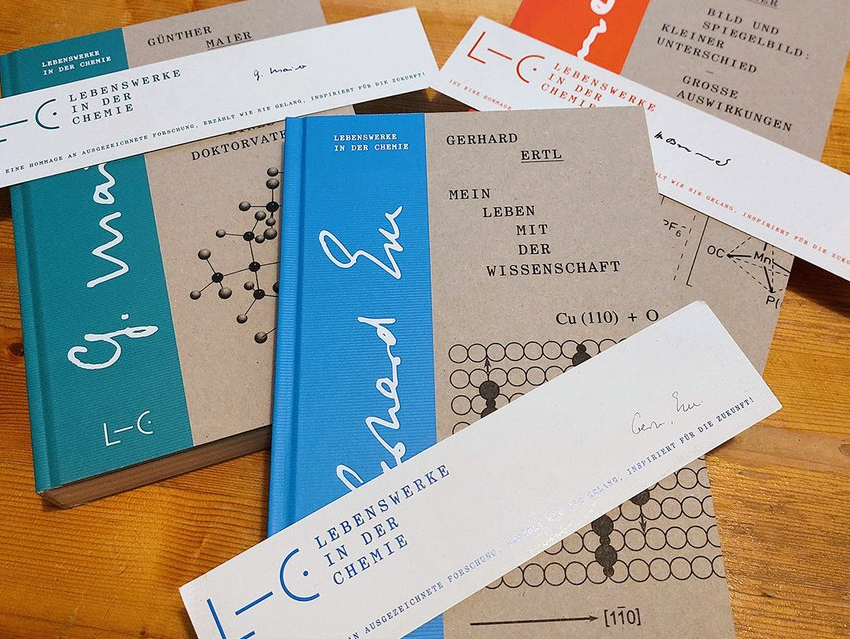The book series “Lives in Chemistry” introduces chemists in autobiographies. Successful scientists were asked to describe (authentically and personally) how new things are created in the natural sciences. So far, there are volumes by Gerhard Ertl, Günther Maier, and Henri Brunner. The initiator and sponsor of the project is the chemist Karl Reuter, CEO of Reuter Chemischer Apparatebau KG (RCA), Freiburg, Germany. The series is further developed by an advisory board consisting of scientists and publishing experts which acts as a body of the division of history of chemistry of the GDCh (German Chemical Society).
One aim of the series is to appeal to younger people and to provide role models. Nachrichten aus der Chemie, the membership magazine of the GDCh, has discussed the books with younger chemists. The Ph.D. and master’s students in chemistry Maria, Charlotte, Felicitas, Philipp, and Philippe were invited to a book club. Before their first meeting, they could choose which autobiographical book they would like to have sent to them. Before that, books like “The Tyranny of the Butterfly” (Die Tyrannei des Schmetterlings) by Frank Schätzing, “The Immortal Life of Henrietta Lacks” by Rebecca Skloot, “Der Mauersegler” (The Swifts) by Jasmin Schreiber, and “Rethinking Our World” by Maja Göpel were on their reading lists.
Asked about the autobiographies, the young chemists see parallels to their own studies and are surprised, for example, at how little the content of the practical courses at university has changed. In addition to chemistry, they would have liked the autobiographers to add more personal things. Especially the descriptions of the work-life balance made the students aware that the authors come from a different generation: Wives take care of the children and other parts of everyday life, even the husband’s health.
The students found the enthusiasm for chemistry and research inspiring. They, for example, considered it exemplary and motivating how Günther Maier studied new methods or went to people who could do something better than him when he was stuck. According to the students, it is a consolation that even particularly brilliant chemists sometimes needed a while to find their way and their motivation. In their love of chemistry, the autobiographers appear modest and not aloof, although they are confident in their skills and proud of their achievements. This is something the students would like to learn from.
- Autobiografien von Chemikern: “Ich würde mir gerne eine Scheibe abschneiden”,
Christian Remenyi,
Nachr. Chem. 2021.
https://doi.org/10.1002/nadc.20214115211




